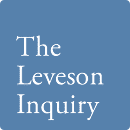Index relies entirely on the support of donors and readers to do its work.
Help us keep amplifying censored voices today.
 What should the Inquiry do? As little as possible, suggests Trevor Kavanagh. The press does not need licences like dogs and gun owners
What should the Inquiry do? As little as possible, suggests Trevor Kavanagh. The press does not need licences like dogs and gun owners
 As the theatrics of the Leveson Inquiry draw to a close, Marta Cooper looks back on the hundreds of hours of evidence in court 73
As the theatrics of the Leveson Inquiry draw to a close, Marta Cooper looks back on the hundreds of hours of evidence in court 73
It was a packed house last night for our event at the Frontline Club debating life after the Leveson Inquiry, which is set to make recommendations for regulation of the British press this autumn.
Panellists Brian Cathcart (Kingston University and Hacked Off), David Aaronovitch (Times), Helen Lewis (New Statesman) and Angela Phillips (Goldsmiths and the Coordinating Committee for Media Reform) — chaired by Jonathan Dimbleby — discussed what they both believed and hoped Leveson would hold for the future.
Phillips argued that the level of collusion between the press, politicians and police was the “shocking” factor, adding that Leveson must examine media ownership to prevent future abuses. The issue — which has been raised of late as hearings come to a close — is outside the judge’s broad terms of reference, with Aaronovitch questioning how diversity would be ensured were caps to be brought in.
On public interest, Cathcart repeated his call for a strong public interest defence to protect responsible journalism, with Phillips matching it with a statutory right of reply. As for ethics, Aaronovitch toyed with the idea of a “bulked-up” self-regulatory system with ethical underpinning, suggesting a modified version of the BBC’s guidelines and penalties model.
Lewis, meanwhile, implored Leveson address the reality that the British press is now competing in a global market of news websites and papers alike. “What the internet has done is terrifying because you can see how well each piece of content has done,” Lewis said, adding that we needed to “get over the idea that blogs and Twitter are the Wild West”.
This has not been the first time Leveson has been nudged to examine the pressures brought on by the web, with MailOnline editor Martin Clarke telling him in May that the Inquiry was obsessing with the “last war” of print in trying to solve the press puzzle. It was left to Aaronovitch last night to muse: “we are locking the stable door after horse has died.”
Indeed, as several audience members noted, there was perhaps more confusion after than before the debate. Such is the array of issues Leveson himself has to tackle this summer as he sits down to pen his report.
Can’t say I envy him the task.
The debate was streamed live, and you can watch it in full below:
 Date: Thursday 19 July
Date: Thursday 19 July
Time: 7-8.30pm
Venue: Frontline club, 13 Norfolk Place, London W2 1QJ
Tickets: Book here
It has been a year since the Prime Minister announced an inquiry examining the culture, practices and ethics of the media in light of the phone-hacking scandal. Since then we have heard from journalists, editors, proprietors, politicians and victims of phone-hacking. As hearings come to a close and Lord Justice Leveson begins to compile his report, join Frontline and Index on Censorship for a panel discussion, followed by Q&A on what the Inquiry has learned and what it should achieve.
Will new regulation damage the free press? How should public interest be defined? Can we ensure protection for sources and whistleblowers? How should relationships between journalists, proprietors, politicians and police be conducted in the future?
Panel includes:
David Aaronovitch, writer, broadcaster, commentator and regular columnist for The Times. He is author of Voodoo Histories: The role of Conspiracy Theory in Modern History and Paddling to Jerusalem: An Aquatic Tour of Our Small Country. Twitter: @DAaronovitch
Brian Cathcart, professor of journalism at Kingston University London and founder of the Hacked Off campaign. He served as specialist adviser to the commons media select committee in 2008-10. He was a journalist at Reuters, the Independent and the New Statesman, and has written books about the murders of Stephen Lawrence and Jill Dando, as well as on the history of nuclear science. Twitter: @BrianCathcart
Helen Lewis, deputy editor at the New Statesman. As well as commissioning and editing, she writes for the NS magazine and blogs for its website, with favoured topics including comedy, feminism, politics and computer games. She has also written forEdge magazine, the Stylist, Square Meal and the Guardian; she reviews the papers on Sky News and has appeared on the Today programme, Woman’s Hour and The Daily Politics. Twitter:@helenlewis
Angela Phillips, senior lecturer in journalism at Goldsmiths College, author of Good Writing for Journalists and co-author of Changing Journalism. She has been a journalist for over 30 years, starting in the alternative press of the 1970s and moving on to work for national newspapers, magazines, television and radio (the BBC and independents). She is also the chair of the Ethics Committee of the Coordinating Committee for Media Reform and gave evidence to the Leveson inquiry on Friday 13 July, 2012. Twitter: @AngelaELL
You can read our policy note on the key challenges for the Leveson Inquiry below:
Freedom of the Press, Governance and Press Standards: Key Challenges for the Leveson Inquiry